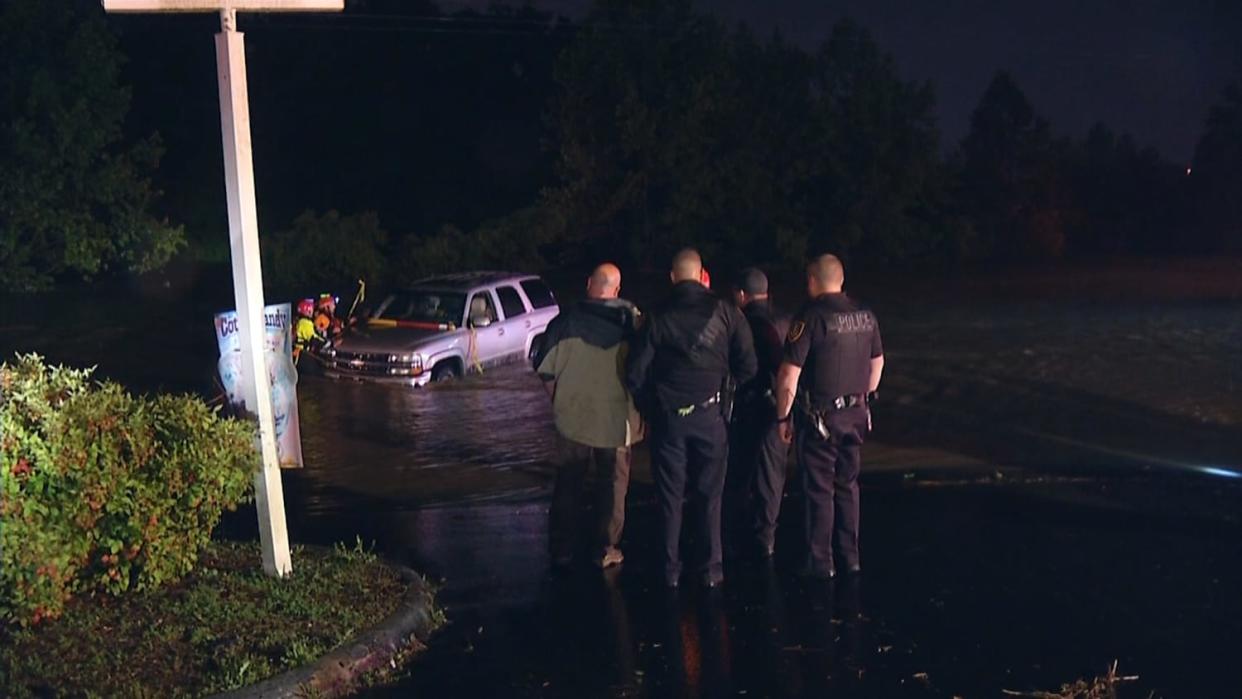Torrential rains pummel Mid-Atlantic with 13 million at risk of flash floods
Torrential downpours have pounded the Mid-Atlantic, with more than 7 inches of rain falling in one day on parts of North Carolina and Virginia, putting residents at risk of flash floods and dam failure.
More than 13 million people were under flash-flood watches Thursday, with rivers in Virginia, North Carolina, South Carolina, Michigan and Illinois at flood stage.
In Roanoke, Virginia, 13 homes were evacuated Thursday morning as heavy rains threatened the Spring Valley Dam, according to tweets from the city.
5Etfw" columns="1" hidemedia="No"%
At least three vehicles got stuck in floodwaters overnight, according to the Roanoke Fire-EMS, which said all occupants were rescued. "Please be reminded that barricades are in place for a reason. They are there for yours and our protection," the department said.
The Roanoke River at Roanoke is expected to rise to 16.5 feet, above major flood stage, according to the National Weather Service. On Thursday at 9 a.m., it had risen above 15 feet.

The weather service reported minor flooding or the potential for flooding along the Haw, Cape Fear, Deep, and Yadkin Rivers in central North Carolina.
Rain there and in neighboring states, including in South Carolina, could fall at the rate of 2 to 3 inches an hour throughout Thursday.
Meanwhile, in central Michigan, where 11,000 people were told to evacuate due to flooding on Tuesday and Wednesday, the Tittabawassee River crested Wednesday afternoon at a historic 35.05 feet, more than 10 feet above flood level and above a previous record set in 1986.
5Etfw" columns="1" hidemedia="No"%
That level was under the predicted 38 feet and came three hours earlier than predicted on Wednesday, but destruction in Midland County caused by the failures of the Edenville and Sanford dams was "devastating" before the river crested, said Gov. Gretchen Whitmer. No injuries due to the floods were reported.
The water level in central Michigan is going down, but forecast to remain above flood stage until Sunday. Last year was the wettest year on record for Michigan, and the entire Great Lakes region has seen a 42 percent increase in heavy precipitation events over the past 58 years.
